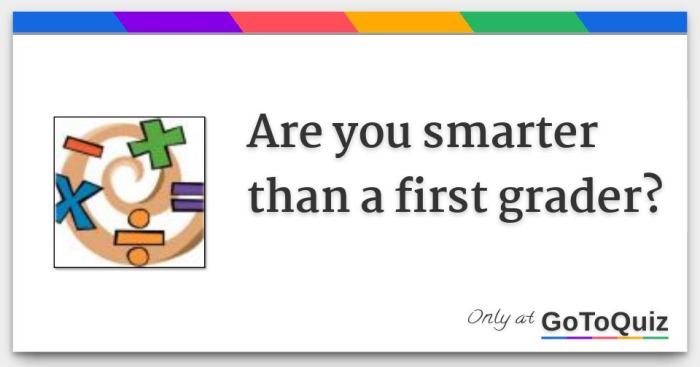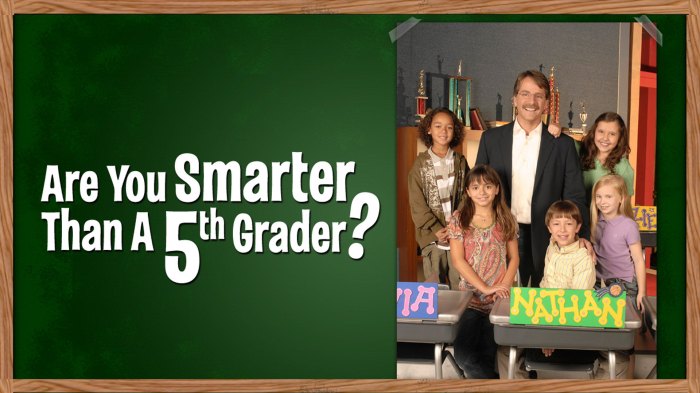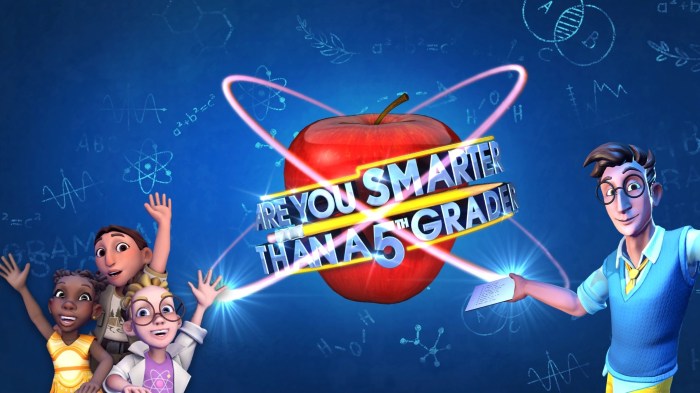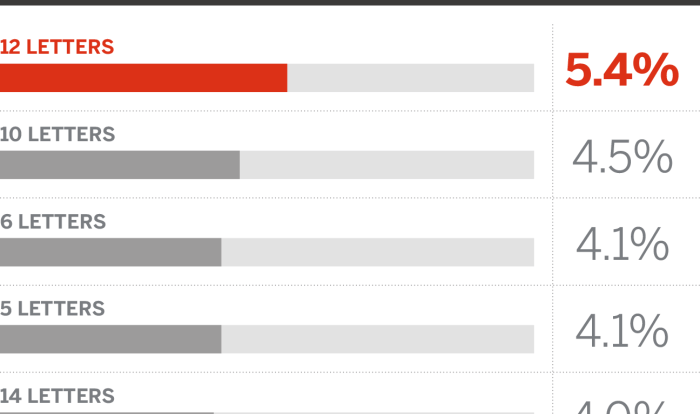Are you smarter than a first grader? This question may seem silly, but it actually reveals a lot about the nature of intelligence and the development of cognitive abilities. In this article, we will explore the knowledge, skills, and developmental milestones of first graders, and compare them to those of adults.
We will also discuss the importance of educational standards and the role of play and hands-on activities in promoting cognitive development.
First graders are at a fascinating stage of development. They are eager to learn and explore the world around them. They are also developing important cognitive skills, such as problem-solving, critical thinking, and creativity. By understanding the cognitive abilities of first graders, we can better support their learning and help them reach their full potential.
1. Knowledge and Skills

First graders possess a unique blend of knowledge and skills that differ significantly from those of adults. The following table provides a comparison:
| Skill | First Grader | Adult |
|---|---|---|
| Reading | Beginning to decode words and read simple sentences | Proficient in reading and comprehending complex texts |
| Writing | Printing letters and writing short sentences | Able to compose essays and write in various genres |
| Math | Counting to 100, basic addition and subtraction | Advanced mathematical concepts, problem-solving |
| Science | Exploring basic concepts, observing and describing | Understanding scientific principles, conducting experiments |
| Social Studies | Learning about their community and history | In-depth knowledge of history, geography, and current events |
First graders exhibit specific cognitive abilities that support their learning. They are capable of:
- Attention and focus
- Memory and recall
- Problem-solving and critical thinking
- Imagination and creativity
- Language comprehension and expression
Furthermore, first graders typically acquire essential academic and practical skills:
- Letter and sound recognition
- Basic reading and writing skills
- Number recognition and counting
- Basic science concepts
- Social skills and cooperation
2. Educational Standards
Educational standards for first graders vary across regions but share common goals of ensuring academic success and preparing students for future learning. The following table summarizes key standards:
| Subject | Standard |
|---|---|
| Reading | Phonics, fluency, comprehension |
| Writing | Sentence structure, grammar, mechanics |
| Math | Number sense, measurement, geometry |
| Science | Life science, earth science, physical science |
| Social Studies | History, geography, civics |
These standards serve several purposes:
- Establish clear expectations for student learning
- Guide instruction and curriculum development
- Provide a basis for assessment and accountability
- Ensure equity and access to quality education
Standards align with the cognitive and developmental needs of first graders by:
- Providing a structured and age-appropriate curriculum
- Promoting critical thinking and problem-solving
- Fostering language and literacy development
- Encouraging social and emotional growth
3. Cognitive Development: Are You Smarter Than A First Grader
First graders undergo significant cognitive development, transitioning from preoperational to concrete operational thinking. They exhibit:
- Increased ability to conserve number, length, and area
- Improved logical reasoning and problem-solving
- Emergence of abstract thinking and categorization
- Enhanced memory and attention span
These cognitive changes impact their learning and problem-solving abilities:
- They can solve simple addition and subtraction problems
- They can understand basic scientific concepts
- They can follow multi-step instructions
- They can make inferences and draw conclusions
Play and hands-on activities are crucial for promoting cognitive development in first graders:
- Encourage imagination and creativity
- Provide opportunities for problem-solving and experimentation
- Foster social interaction and cooperation
- Enhance language and literacy skills
4. Language and Literacy

First graders make significant progress in language and literacy skills. They:
- Develop phonemic awareness and phonics skills
- Increase their vocabulary and comprehension
- Begin to write simple sentences and stories
Phonemic awareness, phonics, and vocabulary are essential for early literacy development:
- Phonemic awareness allows children to recognize and manipulate individual sounds in words
- Phonics teaches the relationship between letters and sounds
- Vocabulary expansion enhances comprehension and expression
Effective strategies for teaching reading and writing to first graders include:
- Phonics instruction
- Shared reading
- Guided writing
- Interactive storytelling
5. Social and Emotional Development

First graders experience significant social and emotional development:
- Develop friendships and learn to cooperate
- Learn to regulate their emotions and behavior
- Develop empathy and understanding of others
Social skills, self-regulation, and empathy are crucial for school success:
- Social skills allow children to interact positively with peers and adults
- Self-regulation helps children manage their emotions and behaviors
- Empathy enables children to understand and respond to the feelings of others
Strategies for fostering social and emotional development in the classroom include:
- Cooperative learning activities
- Social skills instruction
- Positive reinforcement
- Modeling and role-playing
FAQ Corner
What are the cognitive abilities of a first grader?
First graders are developing important cognitive skills, such as problem-solving, critical thinking, and creativity. They are also beginning to understand the world around them and how it works.
What are the academic and practical skills typically acquired by a first grader?
First graders typically acquire a range of academic and practical skills, such as reading, writing, math, and science. They also learn how to socialize with others and how to behave in school.
What is the importance of play and hands-on activities in promoting cognitive development?
Play and hands-on activities are essential for promoting cognitive development in first graders. These activities allow children to explore their environment, learn new things, and develop their problem-solving skills.


